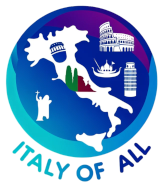The province of Isernia, located in the Molise region of southern Italy, is a relatively small but historically rich area known for its archaeological sites, ancient traditions, and picturesque landscapes. As one of Italy’s youngest provinces, established in 1970 when it was separated from Campobasso, Isernia offers a blend of historical depth and natural beauty.
Geographically, Isernia is characterized by a diverse landscape that includes part of the Apennine Mountains, offering scenic views and a variety of outdoor activities. The terrain is marked by rugged hills and fertile valleys, with significant water resources like the Volturno River flowing through the region. This varied geography supports a mix of agriculture and preserves natural habitats that contribute to the province’s biodiversity.
Historically, Isernia has an extensive history that dates back to prehistoric times. The area is especially notable for the Paleolithic site of Isernia La Pineta, where evidence of early human settlement and fossilized remains have been found, making it a site of significant archaeological importance. Throughout the centuries, the region has seen various rulers from the Samnites to the Romans and later the Lombards, each leaving their mark on the cultural fabric of the province.
Culturally, Isernia celebrates its heritage through various festivals and traditions that reflect its rural and historical roots. Events such as the ‘Festival of Sant’Antonio Abate’, where blessings of animals occur, highlight the province’s deep connection to pastoral life. The local craftsmanship, particularly in working with stone and iron, is also a significant aspect of its cultural identity, with artisans continuing practices that have been passed down through generations.
Cuisine in Isernia is typical of central Italian rural areas, focusing on hearty, simple dishes made with locally sourced ingredients. Dishes such as “pasta e fagioli” (pasta with beans), truffles, and various lamb preparations are staples. Cheese making, particularly pecorino and scamorza, is an integral part of the local gastronomy, reflecting the province’s strong pastoral traditions.
Economically, Isernia’s economy is primarily based on agriculture, with an emphasis on olive oil production, wine-making, and dairy products. The province also has a growing tourism sector, driven by its archaeological sites, natural parks, and historical towns. Efforts to promote sustainable tourism and local artisanal products are increasingly important for economic development.
Despite challenges such as limited industrial infrastructure and the need for more robust economic diversification, Isernia is actively working towards leveraging its historical and natural assets to enhance its economic profile and improve quality of life for its residents.
Overall, the province of Isernia offers a compelling mix of natural beauty, historical depth, and cultural richness, making it an integral yet often overlooked part of Italy’s cultural and economic landscape. Its commitment to preserving its heritage while fostering sustainable development ensures a promising future for this charming province.
Comuni in Isernia Province:
- Agnone
- Belmonte del Sannio
- Acquaviva d’Isernia
- Bagnoli del Trigno
- Altilia
- Capracotta
- Castel del Giudice
- Cantalupo nel Sannio
- Castelpizzuto
- Carovilli
- Castel San Vincenzo
- Carpinone
- Castelverrino
- Castelpetroso
- Forlì del Sannio
- Fornelli
- Chiauci
- Cerro al Volturno
- Filignano
- Colli a Volturno
- Macchiagodena
- Macchia d’Isernia
- Gamberale
- Frosolone
- Isernia
- Lupara
- Montenero Val Cocchiara
- Nemoli
- Montaquila
- Monteroduni
- Pesche
- Roccasicura
- Rionero Sannitico
- Roccamandolfi
- Pescolanciano
- Rocchetta a Volturno
- Pietrabbondante
- Pettoranello del Molise
- Provvidenti
- Pozzilli
- Poggio Sannita
- Pescopennataro
- Sesto Campano
- San Felice del Molise
- Scapoli
- Sessano del Molise
- Santa Maria del Molise
- Sant’Agapito
- Sant’Angelo del Pesco
- San Pietro Avellana
- Venafro
- Vastogirardi
